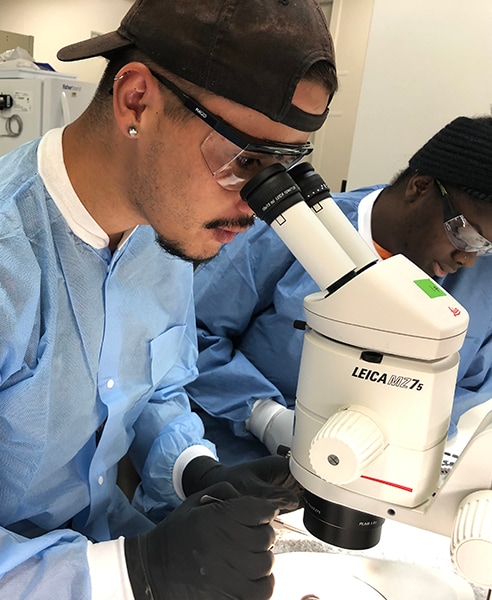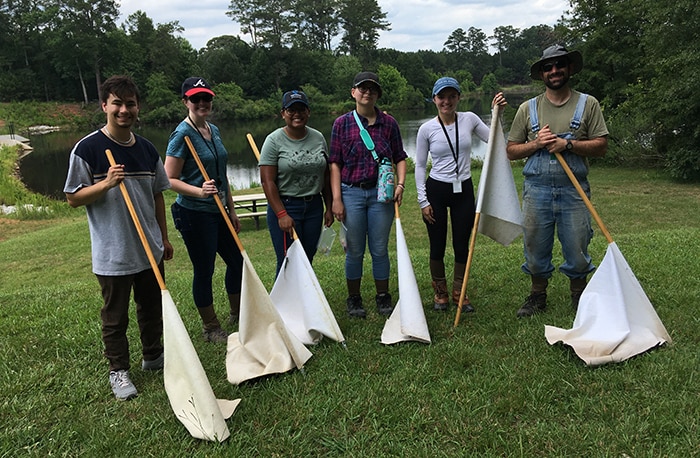Become a PHEFA Intern or Fellow

Learn more about the types of activities interns and fellows participate in during their time with the Division of Vector-Borne Diseases.
Internship Activities
- Learning about mosquito and tick taxonomy by handling specimens, identifying common species, and using scientific keys
- Learning and refining laboratory skills
- Networking with entomology professionals at universities and local vector control organizations
- Rearing mosquitoes
- Setting up and taking down mosquito traps
- Conducting insecticide resistance testing in mosquitoes and calibrating new insecticides
- Evaluating different methods of generating carbon dioxide in order to identify a promising alternative to using dry ice in tick traps
- Testing samples from white-tailed deer for evidence of rickettsial pathogens
- Collecting ticks in local parks
Fellowship Activities
- Testing state-submitted Ixodes species ticks as part of the National Tick Surveillance Program
- Leading an investigation on the diversity of Borrelia species ticks
- Studying Aedes aegypti insecticide resistance in the U.S. Virgin Islands
- Conducting field work and studying mosquito activity
Important Dates for Applicants

- December 15, 2023: Application opens
- February 15, 2023: Application closes
- March – April 2024: Interviews held; offers made
For more information about benefits, eligibility, and application process, please visit ESA’s PHEFA website.